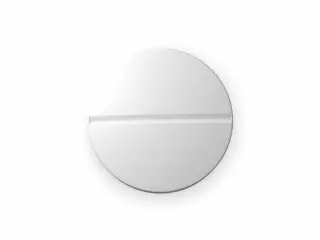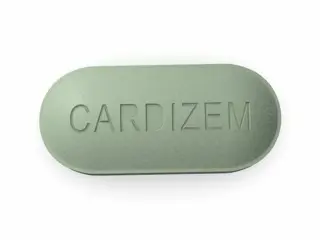Cardiovascular

Explore our range of cardiovascular medications and supplements designed to support heart health, manage blood pressure, and improve circulation. Shop trusted brands for effective treatment and prevention of cardiovascular conditions.
The cardiovascular category covers a wide range of medications used to treat heart and blood vessel conditions. These medicines help manage blood pressure, heart rhythm, blood clotting, and overall heart function. Below is a review of some popular drugs in this category.
Altace (Ramipril) is an ACE inhibitor. It lowers blood pressure by relaxing blood vessels. It helps reduce the risk of heart attacks and strokes. Patients often use it to control hypertension and heart failure. Side effects may include cough and dizziness. Monitoring kidney function is important during treatment.
Cardarone and Cordarone (Amiodarone) are effective antiarrhythmics. They control irregular heart rhythms, especially atrial fibrillation and ventricular tachycardia. Amiodarone is powerful but has several potential side effects, from lung and liver toxicity to thyroid issues. Regular medical supervision is essential when using this drug.
Cardizem (Diltiazem) belongs to calcium channel blockers. It helps in lowering blood pressure and controlling heart rate. It is used in angina and certain arrhythmias. Common side effects include swelling, headache, and low blood pressure. It's a good option for patients with high blood pressure and heart rhythm disorders.
Cartia XT (Extended-release Diltiazem) offers a longer action compared to standard diltiazem. It provides steady blood pressure control through the day. It’s often preferred for patients needing once-daily dosing. Side effects are similar to Cardizem.
Coumadin (Warfarin) is a widely used anticoagulant. It prevents blood clots that can cause strokes and heart attacks. Patients using warfarin must monitor their International Normalized Ratio (INR) regularly. Dietary restrictions and drug interactions are common concerns. Despite this, it remains a cornerstone in clot prevention therapy.
Lanoxin (Digoxin) is a cardiac glycoside that strengthens heart contractions. It’s mainly used in heart failure and certain arrhythmias like atrial fibrillation. The therapeutic window is narrow, meaning doses must be carefully regulated. Monitoring blood levels and watching for toxicity signs, such as nausea and vision changes, is important.
Lisinopril is another ACE inhibitor frequently used to treat hypertension and heart failure. It prevents blood vessel constriction and lowers blood pressure. Lisinopril may cause cough, high potassium levels, and kidney issues, requiring periodic lab tests.
Micardis (Telmisartan) is an angiotensin receptor blocker (ARB). It helps improve blood flow by relaxing blood vessels. It’s used in hypertension and also offers kidney protection in diabetic patients. Micardis generally has fewer side effects than ACE inhibitors.
Nimotop (Nimodipine) is a calcium channel blocker mainly used to prevent brain damage after a subarachnoid hemorrhage. It works by improving blood flow in the brain. Nimotop needs careful dosing and monitoring due to risks of low blood pressure.
Plavix (Clopidogrel) is an antiplatelet agent that prevents clots by stopping platelets from sticking. It reduces the risk of heart attack and stroke in patients with atherosclerosis or after certain heart procedures. Side effects include bleeding and bruising. It is often prescribed alongside aspirin for better effect.
Samsca (Tolvaptan) is used in conditions with low blood sodium, often related to heart failure or liver disease. It works by promoting water excretion without affecting salt balance. Samsca requires close monitoring of sodium levels to prevent complications.
In summary, cardiovascular medications cover various mechanisms to protect the heart and vessels. Patients should always adhere to prescribed dosages and follow up with their healthcare providers. Each of these drugs plays a vital role but comes with specific monitoring needs to ensure safety and effectiveness.













